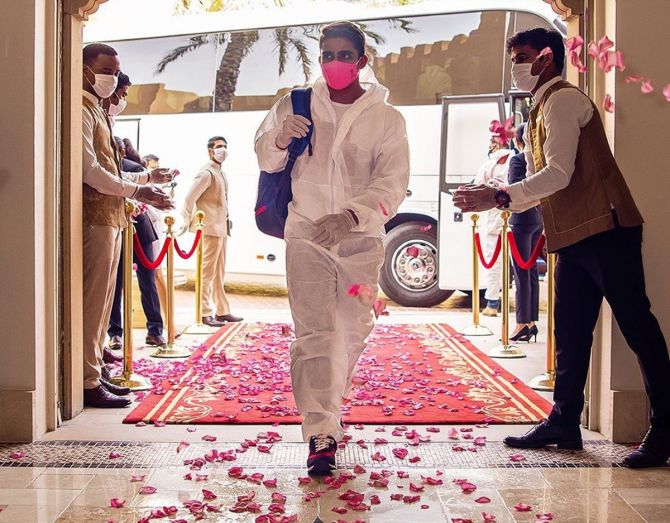Mental Health in Sports
Elite athletes are always viewed as shining examples of strength but they aren’t immune to mental health issues. However, 35% of elite athletes deal with mental health crisis such as stress, eating disorders, burnout, depression and anxiety. Being an elite athlete comes with its own set of challenges, they have a rigorous lifestyle which they cannot alter even during holidays – they have to face pressure to perform in front of lakhs of people, sacrifices in terms of spending time with family and friends are a few examples amongst many other challenges. The ongoing pandemic has magnified the mental health issues which were always prevalent in the sporting world.
Bio-bubble and Mental Health in Cricket
The pandemic has brought in a new element to the game, the bio-bubble which, at first, seemed like the perfect solution to continue sports during the pandemic but it has definitely put a strain on the mental health of the players.
When the concept of the bio-bubble was introduced, the players were enthusiastic about getting back to the field since they hadn’t played cricket in months and that mellowed the effects it has on their mental health back then. Now the players have spent almost 7 months in the bio-bubble – from UAE to Australia and then India – which has magnified the negative effects the bio-bubble has on the players’ mental health. It is tough for senior players who are used to travelling with their families, as under the conditions of a bio-bubble they have to be away from them for months together. Earlier families were a big support system for them but now that support has reduced considerably. However, on the other hand, the younger players who have been given their first break come with gusto which helps them sail past the hurdles of the bio-bubble.
Some younger players have a difficult time bonding with their teammates due to restrictions in activities. A cricket team is accustomed to having outdoor group activities but with the restrictions and protocols the activities are being conducted within the hotel premises with chances of lack of interest from some players over time, thus, leading to disinterest in socialising. This can have a detrimental effect when the player isn’t performing well and they prefer sitting alone in the hotel room where their mind can sway towards the negative direction. Players overthink their upcoming games, uncertain future and there is a constant worry for their loved ones’ health as well. This can be mentally exhausting.
Coping Strategies
1) Practising positive mental imagery
Imagery is living or re-living part or whole of sporting performance. Imagining your past successful performances, strengths and your cricketing shots using all your senses (sight, sound, taste, smell and touch) and positive emotions can help build muscle memory, increase confidence and focus. To increase the effectiveness of the imagery process, make it realistic by imagining every detail of your shots and practice it on a daily basis.
2) Connecting with loved ones over video calls
Social distancing doesn’t mean being socially distant from your support system. Making the best use of technology and connecting with your friends and family on a daily basis acts as a good form of distraction from unwanted negative thoughts.
3) Mindfulness
Stay in the present moment and do not overthink an uncertain future, start your day by sitting alone and focusing on your breathing. Breathe in from your nose for 3 seconds and feel the oxygen entering your body with all the positivity. Breathe out for 6 seconds and imagine all the toxins and negativity leaving your body.
4) Create a routine
A player’s life was governed by routines that went for a toss due to the pandemic but it is essential that you create new routines and follow them. A simple routine for mornings can include:
-
- Focusing on your breathing through mindfulness
- Practising your imagery process to build muscle memory
- Physically practising your cricketing shots or bowling action.
5) Talking to a sports psychologist
No problem is too small to seek professional help. A sports psychologist will listen without judgements and that in itself can be a cathartic experience. A sports psychologist will give you strategies and techniques to cope with any mental issues in a healthy and positive manner.
Many players like Virat Kohli, Faf du Plessis, Glenn Maxwell, and former India mental conditioning coach Paddy Upton have discussed the negative effects of the bio-bubble on the mental health of players and thus, coping strategies need to be put in place for the betterment of the players.
Photo credit – Rajasthan Royals (Instagram).












